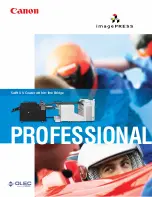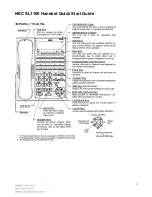
Record Your Key Number:
(located on the set of
locking keys)
Rack Installation
Inadequately secured loads and incorrectly mounted roof
racks and accessory racks can come loose during travel
and cause serious accidents! Therefore, installation,
handling and use must be carried out in accordance with
product and vehicle instructions.
In addition to these instructions, review the mounting
instructions for the roof rack and the operating instructions
of the vehicle.
These instructions should be kept together with the
vehicle’s operating instructions and carried in the vehicle
when in use and en route.
For your own safety, you should only use tested (e.g. GS-
tested) roof racks that are authorized for use with your
vehicle.
Check attachment hardware and load for tight fit and
function:
•
Before the start of any journey.
•
After driving a short distance following rack or load
install.
•
At regular intervals on longer journeys.
•
More frequently on rough terrain.
•
After interruption of a journey during which the vehicle
was left unsupervised. (check for damage due to
outside intervention)
Rack Loading
Do not exceed the maximum load specified for the roof
rack, accessory rack or the maximum load recommended
by the vehicle manufacturer.
Max Roof Load = weight of roof rack + weight of
accessory racks + weight of load.
Bicycle parts, such as handlebars or pedals, shall not
project beyond the contours of the vehicles.
All loose and removable parts, must be removed from
bicycles prior to loading onto bike rack.
Do not transport bicycles with attached baby seats,
panniers, wheel covers, full bike covers or motors.
Do not carry tandem or recumbent bicycles.
Vehicle Driving and Regulations
The speed driven must be suited to the load transported
and to official speed limits. In the absence of any speed
limits, we recommend a maximum speed of 60 mph.
When transporting any load, the speed of the vehicle must
take into account all conditions such as the state of the
road, the surface of the road, traffic conditions, wind, etc.
Vehicle handling, cornering, braking and sensitivity to side
winds will change with the addition of roof top loads.
Off-road driving is not recommended and could result in
damage to your vehicle or your bike.
Maintenance
The accessory rack should be carefully cleaned and
maintained, particularly during the winter months. Use
only a solution of water and standard car wash liquid
without any alcohol, bleach or ammonium additives.
For reasons of fuel economy and the safety of other road
users, the accessory rack and roof rack should be removed
when not in use.
Periodically inspect accessory rack for damage. Replace
lost, damaged or worn parts. Use only original spare
parts obtained from a stocking specialist, dealer or
manufacturer.
Any changes made to the roof racks and accessory racks
as well as the use of spare parts or accessories other
than those supplied by the manufacturer will lead to the
lapsing of the manufacturer’s warranty and liability for any
material damage or accidents. You should observe these
instructions to the letter and only use the original parts
supplied.
IMPORTANT WARNINGS
Содержание Whispbar WB200
Страница 2: ...A B 2X 4X A B B A B 1...
Страница 3: ...A B 2X A B A 2X 2X 4Nm 3ft lb 4Nm 3ft lb...
Страница 4: ...2 INSTALLATION 1 3 4...
Страница 6: ...REVERSIBLE SKEWER QR15 9mm A B A B...
Страница 9: ...11 A B 12 QR15 QR15 9mm Skewer not needed for QR15...
Страница 10: ...UNLOADING 13 15 QR15 9mm 14...
Страница 11: ...18 QR15 16 17 9mm...
Страница 12: ...REMOVAL 19 20 21...
Страница 13: ...XX m XX kg MAX XX kg MAX 37 lbs 17 kg MAX 9 5 lbs 4 2 kg...
Страница 14: ...R8A9N1D Welcome to the CAR WASH...

































